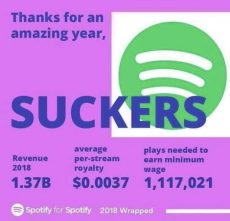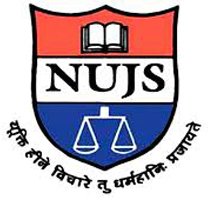Thematic Highlight

Image from tweet here
Who Gets Paid for the Music You Listen to?: Revamping Music and Copyright in India (Part I)
In Part I of this 2-part guest post, Akshat Agarwal analyses the ‘incentive/compensation’ structure actually in place for artists in India as well as its consequences. He lucidly explains that artists receive only a small proportion of revenue earned by music streaming services. He then highlights a deeper issue that enables a few oligopolistic players to capitalize on their monetary privilege and not only deprive authors of survival-based remuneration, but also drive a mainstream and dominant narrative around culture, and its commodification.
He highlights the rhetorical dishonesty of publishing industries that marshal policymakers’ support for stronger rights in the name of compensation to artists only to further their own corporate profit-making interests due to the tool of ‘assignability’ at their disposal. He argues that the Indian entertainment industry reflects the grave consequences of this for the diversity of words in circulation, wherein the wealthy control dissemination. Thus, he argues the content disseminated reflects the interests of a concentrated elite group.

Image from here
Who Gets Paid for the Music You Listen to?: Revamping Music and Copyright in India (Part II)
In Part II, Akshat notes that Section 17 and 18 in the Copyright Act, facilitate an exploitative model of cultural regulation. He argues that section 17 of the Act, allows for corporate industries to be the first owners of copyrighted works created by their employees, and privilege them with an automatic transfer of all the rights which should ideally be vested with the creator in the Act. Section 18, allows for copyright to be transferred via standard form contracts containing unreasonable terms. He argues that this is a godsend for media industries to capitalize and build vast content-based monopolies. In the context of this power differential between artists and giant publishing houses, he urges for disintermediation, i.e. abolishing the assignment of copyright. He argues for alternative revenue sharing arrangements wherein the revenue shall firstly flow to the author, and thereafter, as a fee, to the publisher. He notes that this is more aligned with the reduced costs of dissemination in the digital space. He highlights how this is more suited to the public interest goal of more and diverse expressions. He also argues that the recent amendments should recognise “neighbouring rights” under a separate head by amending section 13 and 14 in order to prevent the conflation of copyright with the financiers’ right.
Other Posts
 NLU-D’s DIGITAL (Digital Rights and Inclusive Technology for All) Fellowship 2021 [Apply by December 22]
NLU-D’s DIGITAL (Digital Rights and Inclusive Technology for All) Fellowship 2021 [Apply by December 22]
We recently informed our readers regarding a call for applications by the Centre for Communication Governance (CCG) at National Law University, Delhi for its DIGITAL (Digital Rights and Inclusive Technology for All) Fellowship 2021. The Fellows will be placed in a civil society organisation/litigation chambers that engages in digital rights litigation, and will also develop related legal and policy research under the guidance of CCG. More details regarding CCG’s work, the Fellowship and eligibility for applications can be found here.
 NUJS International Webinar on Trade Secret as a Momentous Asset [December 12]
NUJS International Webinar on Trade Secret as a Momentous Asset [December 12]
We also recently informed our readers regarding an international webinar on ‘Trade Secret as a Momentous Asset’ on 12th December, organised by the MHRD IPR Chair, NUJS, in association with the IPThink – Tank. The Webinar Agenda and bios of speakers can be found here.
Decisions from Indian Courts
Other News from around the Country
News from around the World